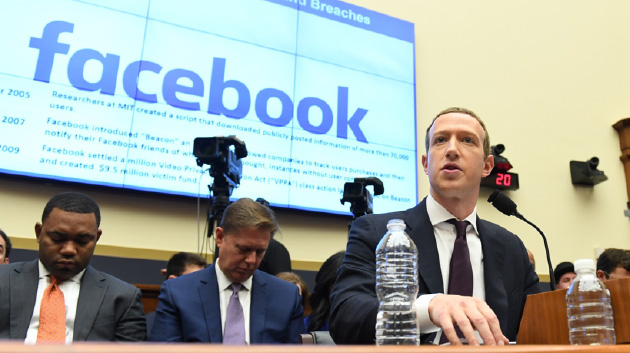Facebook’s Libra Faces Setback
An End to the "Cryptocurrency Fairytale"
(photo:Aflo)
News
Launch of Libra Delayed
Facebook announced its new cryptocurrency, Libra, in June (*1). With 2.7 billion users around the world, Facebook’s launch of Libra (*2) was said to “popularize the cryptocurrency instantaneously” and “challenge the U.S. dollar.”
However, the release date has already been delayed and Libra is facing a myriad of difficulties.
Details
U.S. Congress Reluctant to Recognize Libra
Facebook chief executive Mark Zuckerberg was called to the House Financial Services Committee’s hearing to answer concerns about the cryptocurrency project. Zuckerberg said Libra will not be launched anywhere in the world unless all U.S. regulators approve it.
Libra was scheduled to launch in the first half of 2020, but the original schedule has been scrapped.
The series of events along with the end of a Bitcoin boom signal an end to a fairytale: cryptocurrency will not replace national currency.
Perspectives
National Currency Remains Strong
Bitcoin is a currency that has no central issuer and isn’t backed by any physical commodity or precious metal. The value of Bitcoin is too unstable to be mainstream money. There’s an unspoken agreement that the Bitcoin boom is history; its 20 million users make up merely 0.3% of the world’s population and it has become a “popular investment” that draws curious, superficial investors.
A global company, said to have a greater influence than a nation, has now stepped up to claim its position as an “issuer” — Facebook.
Libra doesn’t rely entirely on the public’s loyalty to Facebook. Unlike Bitcoin, Libra is backed by fiat currencies and released in exchange for dollars, euros or yen (*3). Their selling point is a “stable value” that Bitcoin didn’t have.
On the flip side, it also means that they ultimately had to rely on government-issued currencies. Already, the “cryptocurrency fairytale” is nonexistent.
Zuckerberg accepted delaying the launch of Libra without opposing Congress because Libra is dependent on the U.S. government.
Another problem is that despite Libra leaning on existing currencies, it is dragged on by declining public trust in Facebook.
In 2018, Facebook leaked up to 87 million users’ data to Cambridge Analytica, a political consulting firm. If Facebook launched the currency, they would be in control of a massive amount of payment history; they can’t leak those data without further losing public trust.
Additionally, there are risks of a decline or bankruptcy. Aside from leaking users’ data, they are suspected to be steeply increasing ad costs due to their absolute market share. This year, Facebook fell from top 10 “Best Global Brands” — and we can’t speculate where the company will stand in 10 years.
Due to social media, Libra may spread rapidly in the short-term. The more Libra users expand beyond national boundaries, the more likely it is for unexpected disasters and financial crises to create worldwide recessions.
It isn’t easy to create money to be used in wide areas. We’re seeing the demand for secure credibility, as that of a nation, through a certain level of permanence or economic power (*4).



















